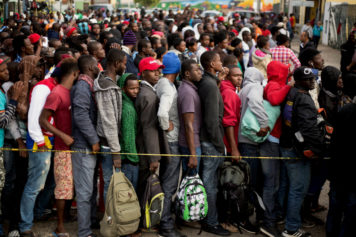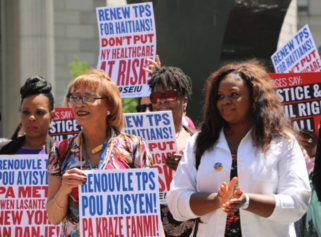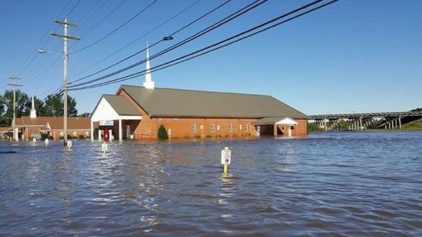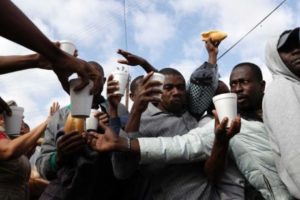
PHOTO Mexico’s migrant shelters are full of Haitians looking to reach the US. AP: GREGORY BULL
A new policy of deporting Haitians who are in the United States without permission has been shelved following the destruction caused by Hurricane Matthew, but the U.S. government intends to return to it in the future.
Speaking in Mexico City where he held talks with Cabinet officials on border, migration and security issues, U.S. Homeland Security secretary Jeh Johnson said some flights to Haiti have been suspended in the wake of the storm, which killed about 1,000 people.
“We will have to deal with that situation, address it, be sympathetic to the plight of the people of Haiti as a result of the hurricane,” he said. “But after that situation, after that condition has been addressed, we intend to resume the policy change that I brought about several weeks ago.”
The United States stopped deporting Haitians after the Caribbean country was hit by a devastating earthquake in 2010, freeing them on humanitarian parole instead.
But on Sept. 21, Homeland Security began putting Haitians in detention facilities as a prelude to sending them home.
The idea behind the new practice was that “Haitian migrants who come to our country illegally would be treated like immigrants from just about every other country who entered our country illegally,” Johnson said.
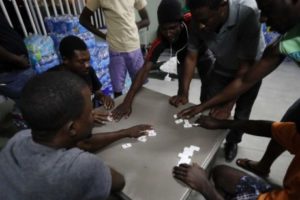
Haitian migrants play dominoes at the Padre Chava migrant shelter, in Tijuana, Mexico.
AP: GREGORY BULL/
Thousands of Haitians have been arriving in Tijuana, Mexico, in recent weeks hoping to cross into the United States, creating a migratory logjam at the border.
They have also overwhelmed Mexican migrant shelters while they wait, with many of them sleeping outside on sheets of cardboard.
Mexican Interior Secretary Miguel Angel Osorio Chong said the Haitian migrants were a subject of talks with Johnson and it was Mexico’s responsibility to try to improve their conditions while they are in the country.
He also expressed hope that the United States, which has been processing only about 75 Haitian migrants per day at the San Ysidro crossing in San Diego, may be able to speed that up.
“Very possibly (their numbers) may rise following the hurricane’s passage,” Osorio Chong said.
The UN high commissioner for refugees and the International Organization for Migration had representatives visit Tijuana this week to take stock of the situation.
With the U.S. presidential election in its closing weeks and Mexicans scheduled to pick a successor to President Enrique Pena Nieto in 2018, officials in Tuesday’s meetings in the capital had their sights set on future cooperation.
Read more here.
